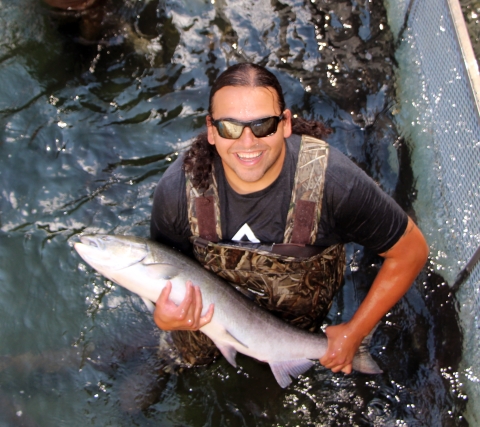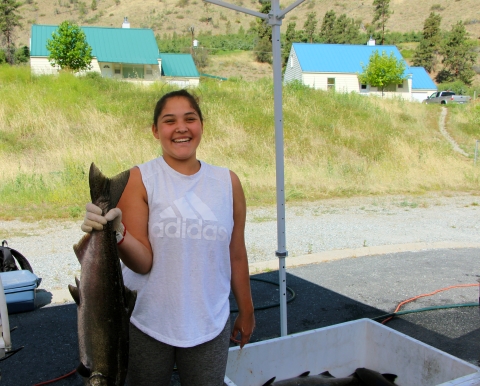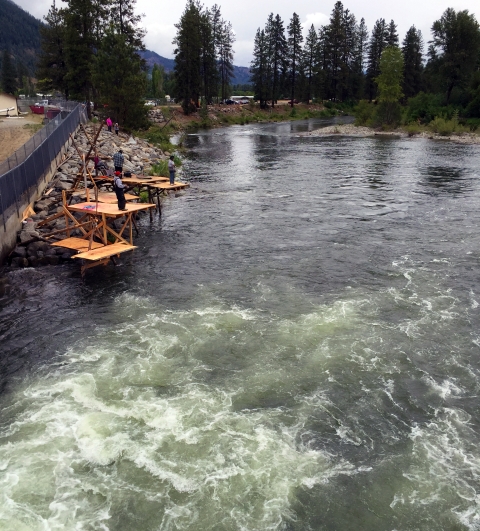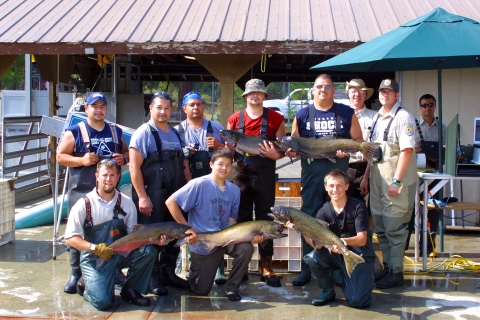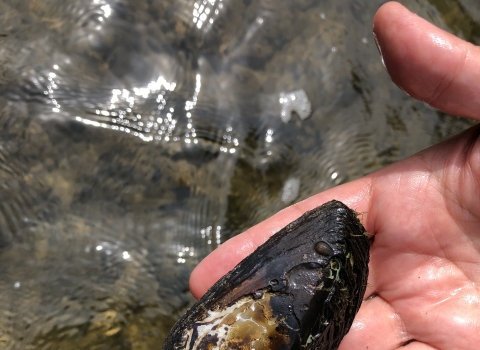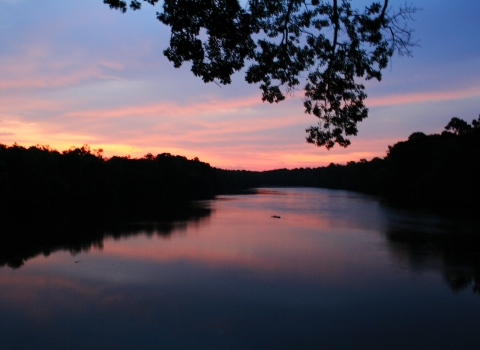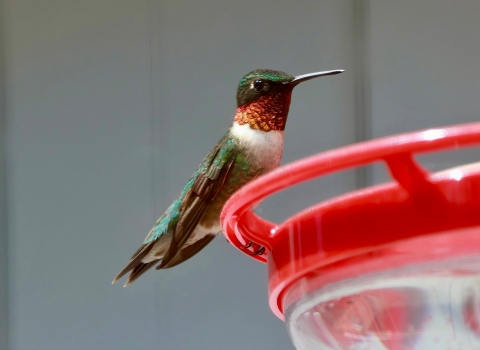Visitors from other countries are often startled to learn that our national fish hatcheries don’t sell fish. But we do give them away.
Our hatcheries at Leavenworth, Entiat, and Winthrop exist because the Grand Coulee Dam cut off a third of the Columbia River to migrating fish. The dam also cut off access by tribal people to the salmon vital to their culture and livelihood. As mitigation for these impacts, we raise salmon and steelhead for release, and provide food fish for the tribes as well as commercial, sport, and tribal fisheries.
The US Fish and Wildlife Service raises fish for the American people, not for profit, as part of our conservation mission. Millions of salmon and steelhead from Leavenworth Fisheries Complex hatcheries support the cultural, economic, and recreational values that shape our Pacific Northwest way of life.
The reproductively mature adults in a population that breed (or spawn) and produce more individuals (offspring or progeny).
Learn more about broodstock are collected by tribal members to bring home and distribute for food.
Native Americans have long since valued and used salmon and steelhead. These powerful fish provided bountiful food and useful materials, as well as meaningful connections. They still do. Working with tribes to support fish populations reminds us that tradition and values play a role in how we operate.
Stop by Leavenworth National Fish Hatchery (NFH) in early June and you’re likely to see tribal anglers at Icicle Creek. A stretch of the river is reserved for them. The hatchery was not located on the banks of Icicle Creek by accident. This spot was used for thousands of years by Native Americans. And they continue to have the right to fish on hatchery grounds.
In addition, sometimes many more salmon return than what we need. We only need 500 female and 500 male spring Chinook salmon to produce 1.2 million fish for release every year in Leavenworth. But the extra returnees can be given to the tribes.
For example, in 2015, we had 6,500 salmon return. This bounty was shared with the Spokane, Coeur D’Alene, and Colville tribes. In 2016, the Spokane received extra fish. In 2017, extra salmon were given to the Kalispel Tribe. The Yakima Nation sometimes takes excess fish as well.
2017 was a tough year at Leavenworth NFH. Returns for spring Chinook salmon were so low that no public fishing was allowed, and tribal fishing was severely limited. But at Winthrop NFH, 938 fish (spring Chinook and steelhead) were given to the Colville, Spokane, and Kalispel tribes. Returning summer Chinook at Entiat NFH were available in abundance. Nearly 1,200 fish went to tribes over the 2018 season. And in 2020, Entiat provided 3,632 summer Chinook. In 2021, a combined total of 4,609 fish were given to tribes from our three hatcheries.
When fish are collected from the hatchery adult ponds, there is a palpable feeling of celebration as tribal members work side by side with hatchery staff. Salmon are special, and we all appreciate their beauty, strength, and nourishment, as well as their significance in tradition and ecology.



